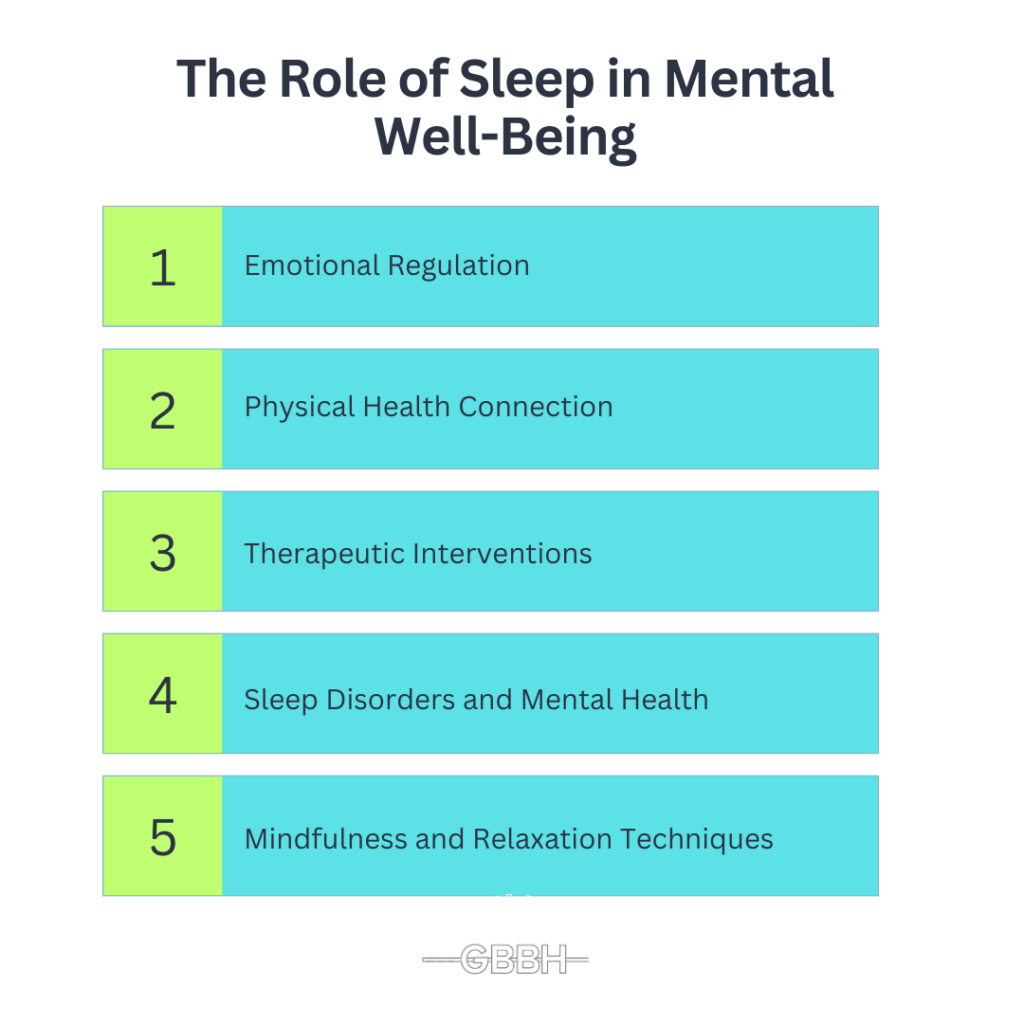In today’s fast-paced world, taking care of your mental health is just as important as looking after your physical health. Mental health plays a crucial role in how we handle stress, make decisions, and interact with others. The good news is that maintaining a healthy lifestyle can significantly improve mental well-being. Maintaining good mental health is just as important as taking care of your physical health. In fact, the two are closely linked. A healthy lifestyle can significantly improve your mental well-being, help manage stress, and increase overall life satisfaction.
Whether you are undergoing mental health therapy programs or simply trying to maintain a balanced life, integrating healthy habits can be a game-changer. Let’s explore how simple changes in your daily habits can promote better mental health and prevent the need for intensive interventions like therapy or treatment programs.
Incorporating Physical Activity for Mental Clarity
Physical exercise is one of the most effective ways to maintain mental health. Regular physical activity helps reduce anxiety, depression, and negative mood by improving self-esteem and cognitive function.
Regular exercise isn’t just for improving your physical health—it’s also one of the most effective ways to boost your mood and mental well-being. Physical activity stimulates the release of endorphins, chemicals in the brain that act as natural mood lifters. Studies have shown that people who exercise regularly are less likely to experience anxiety and depression. Whether it’s walking, running, yoga, or strength training, finding a physical activity that you enjoy can help you manage stress and improve your outlook on life.
If you feel overwhelmed or stressed, even a simple walk or a 30-minute workout can help clear your mind and improve your mood. Many mental health therapy programs, including those offered by mental health treatment centers in Massachusetts, emphasize physical fitness as part of their treatment plans because of the strong connection between physical health and mental well-being.
At our Mental Health Treatment Center in Massachusetts, we often encourage patients to integrate exercise into their routine, as it complements the therapeutic strategies used in cognitive-behavioral therapy (CBT) and dialectical behavior therapy (DBT). These structured approaches not only focus on modifying unhealthy thought patterns but also support lifestyle changes that promote mental and emotional stability.
Nourishing Your Mind with a Healthy Diet
Food not only fuels our body but also impacts how we feel mentally. A diet rich in fruits, vegetables, lean proteins, and whole grains is linked to better mental health. On the other hand, processed foods high in sugar and fats can lead to mood swings, fatigue, and even symptoms of anxiety and depression.
What you eat plays a major role in how you feel. A balanced diet rich in fruits, vegetables, lean proteins, and whole grains can fuel your brain, improve concentration, and elevate your mood. On the other hand, a poor diet, high in sugar and processed foods, can lead to mood swings, irritability, and mental fatigue.
The connection between nutrition and mental health is becoming more evident in therapeutic settings. For those enrolled in mental health therapy programs, improving dietary habits can complement the coping strategies learned in treatment. At GBBH, our professionals work closely with patients to incorporate healthier eating patterns into their mental health recovery plans.
By incorporating more nutritious foods into your meals, you are providing your brain with the nutrients it needs to function at its best. Mental health treatment centers often include dietary guidance as part of their mental health therapy programs because the connection between diet and mental health is undeniable.
The Role of Sleep in Mental Well-Being
When you don’t get enough sleep, your brain doesn’t have time to rest and recharge. This can lead to mood disorders, cognitive impairments, and increased stress.
Getting enough quality sleep is essential for both physical and mental health. Sleep deprivation can negatively impact your emotional regulation, increase anxiety, and even exacerbate symptoms of depression. Healthy sleep habits—such as maintaining a consistent sleep schedule, creating a restful environment, and limiting screen time before bed—are key components to maintaining your mental health.
If you are struggling with insomnia or other sleep disorders, cognitive-behavioral therapy for insomnia (CBT-I), which is available at our Mental Health Programs, may be recommended. Sleep improvements can significantly boost your mood and enhance your ability to manage stress.
Mental health programs often address sleep hygiene, helping individuals build better sleep habits that improve their mental well-being over time.
Social Connections and Emotional Support
Strong social support is another vital component of a healthy lifestyle. Isolation and loneliness can have detrimental effects on your mental health, while maintaining meaningful connections can provide emotional support during difficult times. Surrounding yourself with friends and family who offer encouragement can reduce feelings of isolation, increase happiness, and foster a sense of belonging.
For individuals who feel isolated or struggle to maintain connections, therapy such as dialectical behavior therapy can help build interpersonal effectiveness skills. At Greater Boston Behavioral Health, we incorporate group therapy as part of our comprehensive treatment to help patients develop and maintain healthy relationships.
Stress Management and Self-Care
Chronic stress is one of the major contributors to mental health issues, including anxiety, depression, and burnout. Developing healthy coping mechanisms, such as mindfulness practices, relaxation techniques, and setting aside time for self-care, can drastically reduce stress levels. Mindfulness and relaxation exercises can be taught as part of mental health therapy programs, offering patients practical tools to incorporate into their daily lives.
At Greater Boston Behavioral Health, our therapists work with patients to help them create individualized self-care routines that support long-term mental wellness. From meditation and journaling to hobbies and creative outlets, the key is finding what works best for you.
Seeking Support Through Therapy Programs
While a healthy lifestyle can improve mental well-being, some individuals may need additional support. For those facing more serious mental health issues, seeking professional help is essential. Programs such as cognitive-behavioral therapy (CBT) and dialectical behavior therapy (DBT) are common approaches used in mental health treatment centers in Massachusetts and across the country.
CBT is designed to help individuals change negative thought patterns that contribute to their mental health struggles. It is particularly effective for individuals struggling with emotional regulation, self-harm, or relationship difficulties.
Benefits of Mental Health Therapy Programs
Enrolling in a mental health therapy program can be a transformative experience. These programs are tailored to address each individual’s unique needs and offer comprehensive treatment approaches. For example, mental health treatment centers in Massachusetts provide a range of therapy options that go beyond just medication or talk therapy. They offer group sessions, art therapy, mindfulness exercises, and more to ensure holistic healing.
If you or someone you know is struggling, seeking help from a mental health treatment center can provide the tools needed to navigate challenges and maintain a healthy, balanced lifestyle.
Conclusion: Small Changes, Big Impact
Maintaining a healthy lifestyle doesn’t require drastic changes. Simple steps like exercising regularly, eating well, getting enough sleep, and seeking therapy when needed can go a long way in improving your mental health. Mental health programs and therapy, such as cognitive-behavioral therapy and dialectical behavior therapy, play a crucial role in helping individuals manage their mental health. However, integrating healthy lifestyle habits into your daily routine can prevent many mental health challenges before they arise.
Remember, mental health is an ongoing journey. Stay active, eat well, sleep sufficiently, and don’t hesitate to seek professional help if needed. Your mind will thank you for it! If you or a loved one are in need of professional mental health treatment, don’t hesitate to contact us. Our experienced team is here to provide compassionate care through our range of therapies, including cognitive-behavioral therapy and dialectical behavior therapy, designed to support you on your path to recovery. Call us at (888)278-0716 today to learn more about our services and how we can help you on your journey to recovery!
FAQ On Maintaining a Healthy Lifestyle for Better Mental Health
How does physical activity improve mental health?
Physical activity releases endorphins, which are natural mood lifters. Regular exercise can reduce symptoms of anxiety and depression while boosting overall emotional well-being.
Can diet really impact my mental health?
Yes, a well-balanced diet can improve mood, concentration, and energy levels. Nutrient-dense foods support brain function, while a poor diet can lead to irritability and fatigue.
Why is sleep so important for mental health?
Adequate sleep is crucial for emotional regulation, stress management, and cognitive function. Poor sleep can exacerbate mental health conditions like anxiety and depression.
How can I manage stress to improve my mental health?
Managing stress through mindfulness practices, relaxation techniques, and self-care can significantly improve your mental well-being. Therapy can help develop effective coping strategies.
What therapies are available at Greater Boston Behavioral Health to support mental wellness?
We offer cognitive-behavioral therapy (CBT), dialectical behavior therapy (DBT), and other mental health therapy programs tailored to support a healthy lifestyle and long-term mental wellness.
When should I seek professional help for my mental health?
If lifestyle changes are not enough and you continue to struggle with anxiety, depression, or other mental health issues, seeking professional help is important. Our mental health programs provide the support and care needed to improve your well-being.


